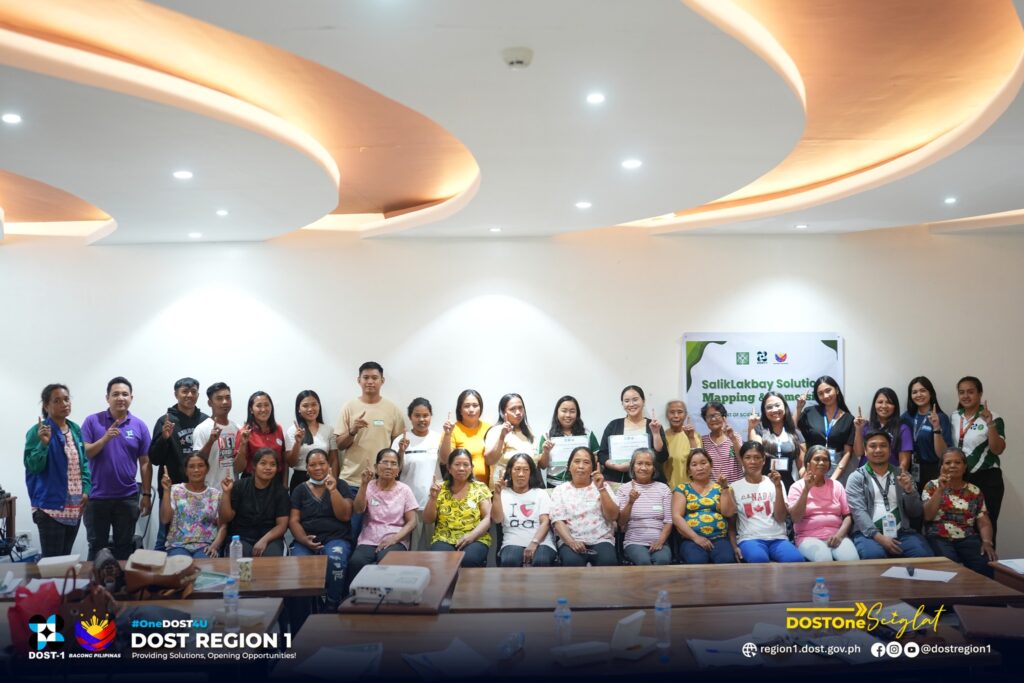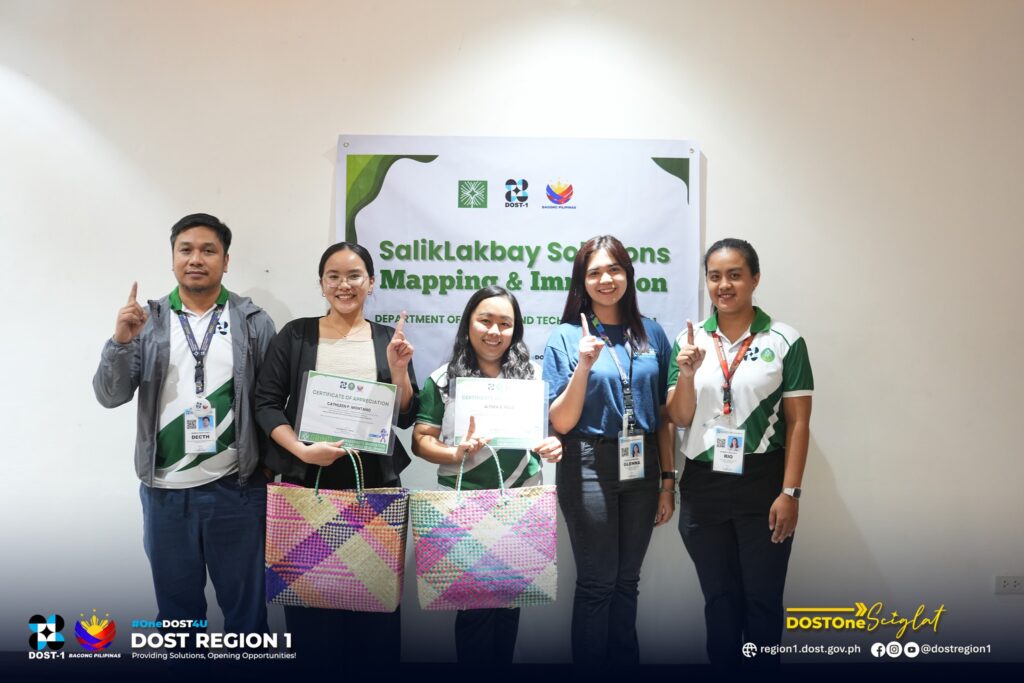THE regional office of the Department of Science and Technology recently conducted the SalikLakbay Solutions Mapping training and immersion in Ilocos Norte.
The initiative, which was conducted through the Grassroots Innovation for Inclusive Development (GRIND) program of DOST-Region 1, was held on March 26 to 28 at the Mariano Marcos State University (MMSU) campuses in Batac City, Nueva Era, and Pasuquin, all in Ilocos Norte.
The program seeks to empower local innovators and marginalized communities by equipping them with essential skills to develop sustainable, science-driven solutions,
It is also aimed at creating sustainable, scalable, community-driven solutions through Science, Technology, and Innovation (STI).

The three-day event was attended by regional officials, among them, DOST Region 1 Director Dr. Teresita A. Tabaog, former regional director Armando Q. Ganal, GRIND project leader and ARD for Field Operations Decth-1180 P. Libunao, DOST-Ilocos Norte OIC-provincial director Benjamin S. Mercado Jr., the DOST-Ilocos Norte Team (DOST-IN), GRIND Support Staff, Rio Dyan B. Adviento, and the DOSTOneGRIND Core Group, who underscored the government’s commitment to promote innovation and inclusive development at the grassroots level.
Representatives from the GRIND Core Group, GITEC, and local communities, including Nueva Era’s Tinguian basket weavers, Pasuquin farmers, fisherfolk, and salt makers’ associations participated in the training and immersion activities, which included solutions mapping methods to identify and improve innovations in communities, focusing on heritage foods, endangered crafts, and grassroots innovations for the circular economy.
The DOST said the participating groups are vital in preserving traditional knowledge while using modern science to improve local livelihoods.

On the first day of the training, Dr. Tabaog welcomed participants and emphasized the significance of the program in promoting regional development; while Libunao provided the rationale for the activity, followed by a message from Dr. Anthony C. Sales, the regional director of DOST Region XI.
Kent Jerico Ramil, Science Research Specialist II of DOST-IN, introduced the resource persons, which included Althea G. Rojo from DOST-XI who gave a brief introduction on the GRIND program and outlined its core objectives and goals; and Cathleen P. Montano, also from DOST-XI, who presented the SalikLakbay Solutions Mapping Concept and provided an overview of its application in the region.
Dr. Lily Ann D. Lando, a freelance consultant, shared valuable insights on field research and techniques for conducting field observations and interviews.
In the afternoon, John Rey E. Viernes, Nurse II from the Technical Management Service Division of NCIP I, led a session on cultural awareness and sensitivity, emphasizing the importance of understanding the cultural dynamics of the communities involved in the program.
An orientation on the SalikLakbay mobile application and website was also conducted by Rojo, where participants learned how to navigate and effectively use the platform for field operations.
The event concluded with a sharing of best practices by Montano, followed by the closing remarks which was delivered by Ginee R. Tacasa, Science Research Analyst. The day ended with a photo opportunity to commemorate the success of the event.
A key feature of the training was its emphasis on collaboration among stakeholders. Experts from various fields guided participants in co-developing strategies to address pressing socio-economic challenges. Furthermore, the program highlighted the importance of gender inclusivity, recognizing the vital role of women in innovation and entrepreneurship.
Special platforms were also provided to encourage leadership and active participation in community-driven development projects.
The immersion component on the second and third day allowed participants to engage directly with local communities, providing an experience in applying learned concepts and refining their solutions.
By promoting real-world application, the program ensured that these innovations were relevant, practical, and beneficial to the target communities.
Through the SalikLakbay Solutions Mapping Training and Immersion, DOST Region 1 seeks to bridge the gap between grassroots innovators and formal innovation systems by equipping local communities with the necessary tools and knowledge and enhancing resilience, economic opportunities, and environmental sustainability in Ilocos Norte and the entire Ilocos region. (Rio Dyan B. Adviento & Lemuel G. Castigo)